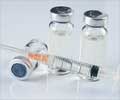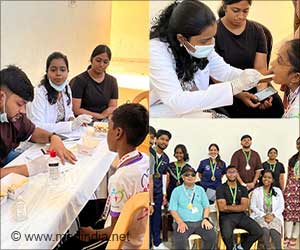
‘To prevent chronic rejection in organ transplant patients, TNF inhibitors like etanercept and thalidomide along with conventional therapy of tacrolimus and mycophenolate mofetil, can be used to improve outcomes.’
Read More..Tweet it Now
Director of the research team Sanjeev Gupta, MD, Department of Medicine and of Pathology, and Marion Bessin Liver Research Center, Albert Einstein College of Medicine, Bronx, NY, USA said, “New insights into immune inflammatory mediators indicate that rejection and tissue injury can be avoided with available drugs. The ability to prevent and/or control tissue injury will improve graft survival for transplantation medicine, advance use of cells and tissues for regenerative medicine, and offer insights for controlling inflammation-related tissue injury in other circumstances."Read More..
Transplanting organs from unrelated or mismatched donors into individuals can activate immunological defenses against ‘foreign’ material. Immunosuppressive drugs that block lymphocyte (White Blood Cells) responses have delivered success in the short term, but chronic rejection and tissue injury due to unidentified mechanisms and processes over long term can lead to the loss of transplanted organs.
To study the factors that work in tissue rejection, the researchers have developed liver cell transplantation models in laboratory rats with or without immunosuppression, by using drugs routinely given to humans. Inflammation was studied by using gene expression to determine the activation of soluble signals associated with various cell types.
The study found differences in the expression of 40-50 soluble networks particularly in the activation of TNF, a major inflammatory mediator, and its cellular receptors is prominent, persisting over the long term.
By blocking TNF, the activation of most other inflammatory signals was stopped, revealing that it is important, activating the cytokines, chemokines, and receptors arising from the body's immune systems defending against foreign material like microbes, viruses, and mismatched transplants.
Advertisement
The gene expression showed that by blocking TNF decreases the recruitment and activity of inflammatory cells. Other studies show that blocking TNF led to superior survival and proliferation of transplanted cells, regenerating the liver far more effectively.
Advertisement
Source-Medindia










